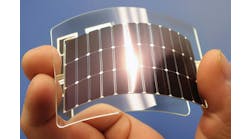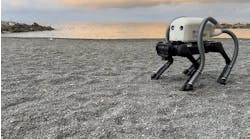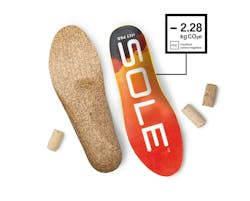Running on Wine Corks: The Company Replacing Petroleum-Based Foams in Footwear
ReCORK, a company that creates high-performance, carbon-negative composite materials and components using natural recycled corks, is setting out to change the footwear industry with the ReCORK Recycled Cork midsole.
The idea is to create a functional replacement for petroleum-based foam that consists of more than 75% recycled natural cork. The first version of the midsole has been used in the Jasper Chukka shoe made by ReCORK's founding company, SOLE.
The Jasper Chukka is "designed to replicate the cozy comfort of a puffy jacket, without the heavy reliance on petrochemical-based synthetics".
The shoe features a midsole made from post-consumer recycled wine corks giving wearers a lightweight, flexible, durable, and cushioning alternative that's also carbon-negative. It actually removes more carbon from the atmosphere than it adds.
Cork isn't the only natural material used in the shoe. Its quilted upper combines natural fibers: Merino wool and up-cycled bison fur. Together these materials provide a temperature-regulating, moisture-wicking, and antimicrobial shoe.
Inside the shoe, SOLE's Signature Supportive Shape insole is topped with natural cork fabric while the natural rubber outsole rounds off the sustainable material choices.
Why are they looking to replace foam in midsoles when it works so well already? Greenhouse gas emissions. According to a report by Quantis in 2018, the footwear industry is responsible for ~1.4% of global greenhouse gas emissions which equates to ~700 million metric tons of CO2 per year. Total global emissions are around 50 billion metric tons per year.
While there are a lot of components that are contributing to these emissions in the footwear industry, a large portion is due to carbon-intensive fossil fuel foams—such as EVA (ethylene-vinyl acetate) and polyurethane foams—used in sneakers and running shoes.
ReCORK isn't the only company trying to help solve emissions issues. Adidas has partnered with Parley for the Oceans to create shoes made from recycled ocean plastic. Nike has committed to reducing its carbon footprint through the "Move to Zero" campaign, aiming for zero carbon and zero waste. Companies like Allbirds and Veja focus on sustainability, using eco-friendly materials and transparent supply chains to minimize their environmental impact.
Cork is sustainable since it naturally grows as the bark of cork oak trees and can be harvested without cutting the tree down. According to ReCORK, for every kilogram of cork, the tree absorbs 55 kg of CO2. Even when the carbon impacts of transport and processing are accounted for, each pair of ReCORK Recycled Cork midsoles is carbon negative, with a net impact of removing 5.775 kg of CO2 from the atmosphere.
Canadian footwear brand SOLE launched ReCORK 15 years ago and in that time, has established a large network of partners across North America, all working together to collect more than 132 million wine corks for recycling to date.
“It’s taken many years of R&D to get to this point. We're here to show what's possible when you invest enough time and resources and you refuse to settle for the conventional modes of production that the footwear industry relies upon. We're here to create radical change for the better," said Baker, who sees this latest achievement as a watershed moment for sustainable innovation.












